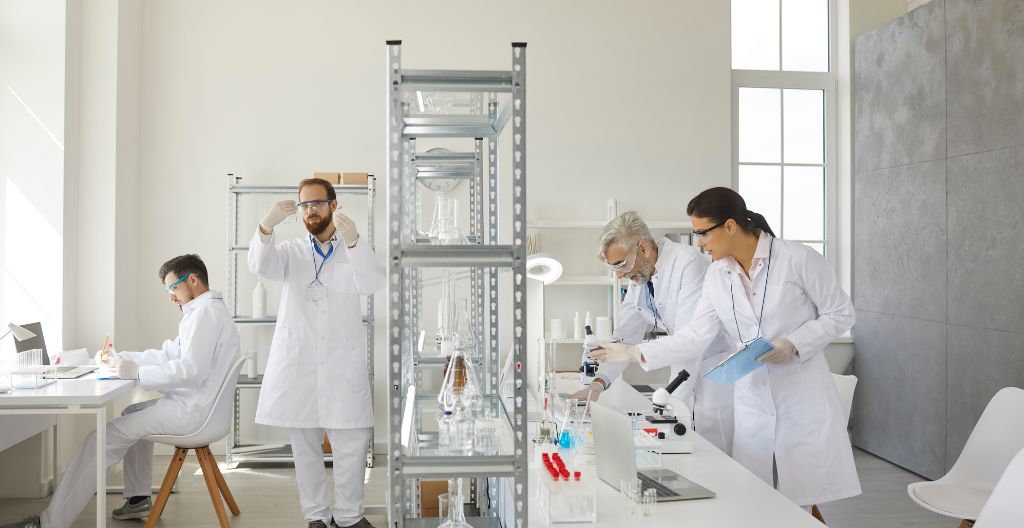This article offers an in-depth comparison between anecdotal and scientific evidence, emphasizing their respective strengths and limitations.
It explores the objective nature of scientific evidence and the subjective characteristics of anecdotal evidence.
The influence of both types on decision-making, particularly in healthcare and education, is discussed.
The aim is to enhance readers’ understanding of evidence evaluation, promoting critical thinking and informed decision-making in interpreting and applying scientific news.
Key Takeaways
- Anecdotal evidence is limited in value due to bias and personal preconceptions.
- Scientific evidence relies on more rigorous methods and is less prone to error.
- Relying exclusively on anecdotal evidence can lead to overgeneralisation and bias.
- Understanding research terms helps in evaluating the rigor of studies.
Understanding the Basis of Anecdotal and Scientific Evidence
Drawing from our comprehensive knowledge, understanding the basis of anecdotal and scientific evidence involves distinguishing between the methodological rigor of scientific research and the subjective nature often associated with anecdotal accounts.
Anecdotal evidence feeds on personal experiences. It lacks the stringent checks and controls that you will find in scientific research. This is one of the most noticeable differences with scientific evidence. Anecdotal evidence is subjective and it can lead to biased perceptions while scientific evidence is backed up by rigorous research methodology. This results in a much more trust-worthy basis for drawing conclusions.
However, how does anecdotal evidence contrast with scientific evidence? While anecdotal evidence can offer insights into individual experiences, it cannot be generalised like scientific evidence. Hence, it’s crucial to understand the differences to make informed decisions.
The Role and Impact of Scientific Evidence in Research
In the realm of research, scientific evidence plays a crucial role by providing a robust and reliable foundation for conclusions, with its impact being seen in the thousands of studies conducted annually worldwide. As a cornerstone of modern science, it acts as a critical tool, guiding decision-making, validating theories, and contributing to advancements in various fields. However, understanding, interpreting, and applying scientific evidence requires a certain level of expertise and critical thinking.
| Aspect | Role | Importance |
|---|---|---|
| Generation | Production of evidence through methodical research | Ensures reliability and validity |
| Interpretation | Understanding the implications of the evidence | Bridges the gap between research findings and practical applications |
| Application | Incorporating evidence into practice | Drives innovation and enhances decision-making |
Thus, scientific evidence holds paramount significance in research, shaping our understanding of the world.
Exploring Anecdotal Evidence: Pros and Cons
If you want to explore the realm of anecdotal evidence you need to know that even though it is appealing and leads to personal relevance, you are also exposed to overgeneralisation. This type of evidence is based mainly on personal testimonials which sometimes might not be accurate for different reasons.
Benefits of Anecdotal Evidence:
- Personal relevance: Stories resonate with us, making the evidence relatable and memorable.
- Easy comprehension: The information is usually straightforward, making it accessible to a wide audience.
Drawbacks of Anecdotal Evidence:
- Susceptibility to Bias: Personal perceptions can color the evidence, leading to skewed interpretations.
- Risk of Overgeneralisation: A few experiences can be mistakenly applied to broader populations or contexts.

Key Differences Between Anecdotal and Scientific Evidence
Unquestionably, the key differences between anecdical and scientific evidence lie primarily in their collection methods, reliability, and susceptibility to bias.
Scientific evidence is derived from rigorous, systematic and objective methodologies, which are replicable and verifiable. This evidence is less susceptible to bias, making it a more reliable source of information.
On the other hand, anecdotal evidence feeds on personal experiences and their testimonies. These are subjective and can be biased. It doesn’t have the rigour and reproducibility of scientific methodologies and it leads to a higher chance of inaccuracy.
While anecdotal evidence can provide valuable insights and context, it should not be used as a standalone source of evidence due to its inherent limitations.
Hence, a balance between anecdotal and scientific evidence should be sought for a comprehensive understanding.
Case Studies: Anecdotal and Scientific Evidence in Action
How do case studies illustrate the application of anecdotal and scientific evidence in real-world scenarios, and what insights can we derive from these instances?
Case studies provide an opportunity to apply both types of evidence in a real-world context. They allow for a deep exploration of specific situations, offering insights into how anecdotal and scientific evidence can be used together for a more comprehensive understanding.
- Anecdotal Evidence in Case Studies
- Personal experiences and testimonies provide rich, qualitative data.
- Offers detailed insights, but may be subjective and prone to biases.
- Scientific Evidence in Case Studies
- Provides objective, measurable data obtained through rigorous methods.
- Can validate or challenge anecdotal evidence.
- Insights from Case Studies
- Balance between anecdotal and scientific evidence is crucial.
- Strengthens the validity of findings and facilitates informed decision-making.
Frequently Asked Questions
What Is the Psychological Reasoning Behind the Persuasive Power of Anecdotal Evidence Over Scientific Evidence?
The persuasive power of anecdotal evidence often stems from its emotional resonance and relatability, which can make it seem more compelling to individuals, despite its lack of scientific rigour or broader applicability.
How Can Scientific Research Be Made More Accessible and Understandable to the General Public?
Making scientific research accessible to the public involves simplifying complex jargon, summarising key findings, utilising visuals, and providing real-world applications. Public engagement initiatives and open-access journals also enhance accessibility and understanding.
What Are Some Strategies to Educate People on the Importance of Scientific Evidence and the Limitations of Anecdotal Evidence?
Strategies to educate people on the importance of scientific evidence and the limitations of anecdotal evidence include public awareness campaigns, integrating science literacy in education, and promoting critical thinking skills in various platforms.
How Does the Spread of Misinformation and Reliance on Anecdotal Evidence Impact Policy Making in Fields Like Healthcare and Education?
Misinformation and reliance on anecdotal evidence can negatively impact policy making in healthcare and education, potentially leading to ineffective or harmful strategies, due to their lack of rigorous testing and susceptibility to bias.
Can Anecdotal Evidence Ever Be Useful or Reliable in Certain Circumstances or Fields?
Anecdotal evidence can indeed be useful in certain circumstances, particularly for generating hypotheses or understanding individual experiences. However, its reliability is limited due to the potential for bias and lack of rigorous testing.
Sign up for our Publishing Newsletter and start delivering creative, concise content
Conclusion
This comparative study underscores the importance of understanding the differences and nuances of anecdotal and scientific evidence.
While scientific evidence offers objectivity and replicability, anecdotal evidence provides depth, context, and personal perspectives.
Despite its potential bias, anecdical evidence can guide research directions and inspire scientific inquiry.
Thus, both types of evidence should be critically evaluated for an informed understanding of science news, aiding in effective decision-making in various fields such as healthcare and education.

